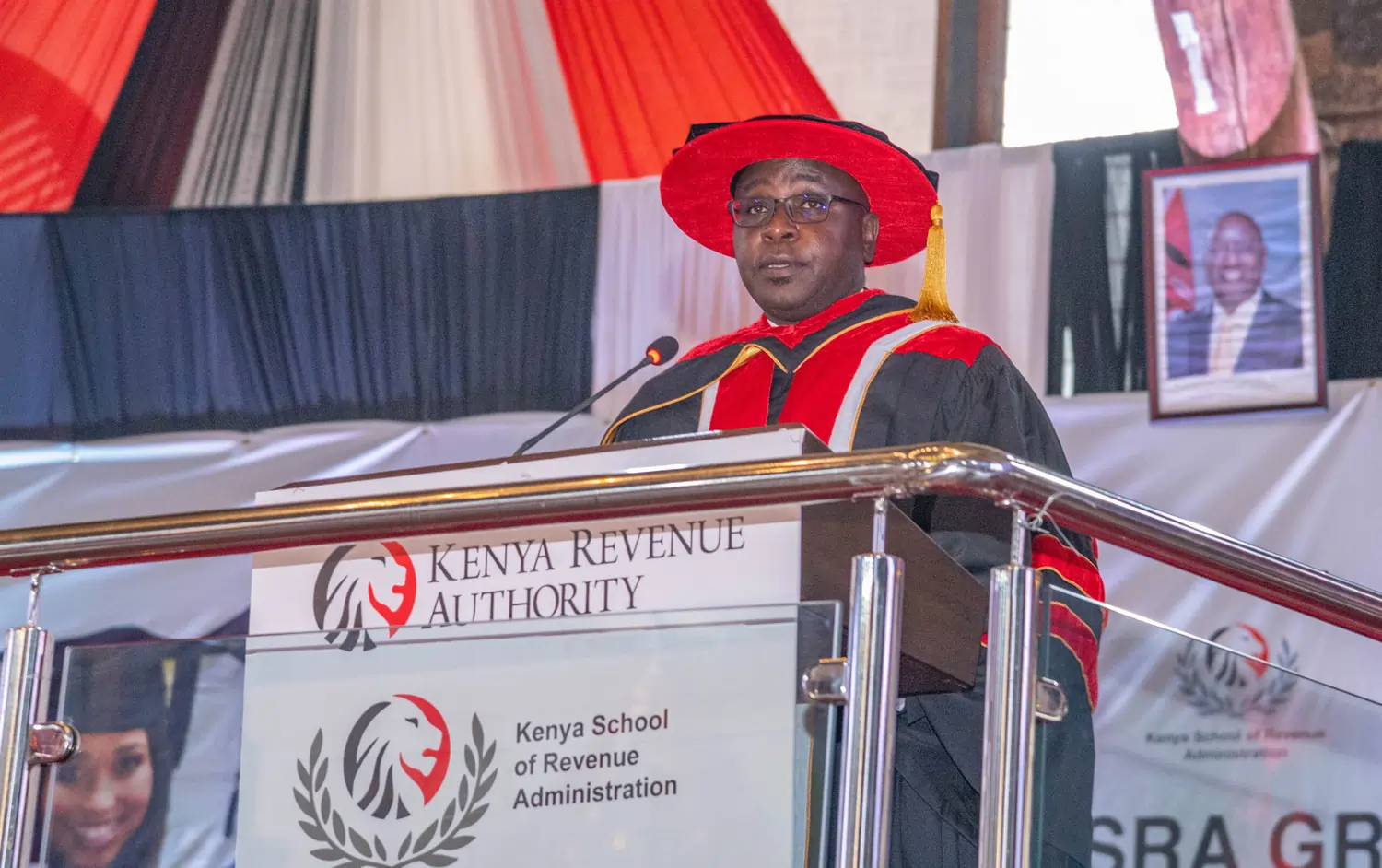The Kenya Revenue Authority (KRA) has released draft amendments to tax procedures governing the importation, assembly, and manufacture of motor vehicles, motorcycles, and trailers. The amendments, open for public review and feedback until February 21, 2025, seek to bolster Kenya’s industrial sector, promote electric vehicle (EV) adoption, and reduce reliance on imported automotive components.
This initiative is part of Kenya’s long-term vision to expand its local vehicle manufacturing industry, aligning with President William Ruto’s Bottom-Up Economic Transformation Agenda (BETA) and the government’s green mobility strategy.
KRA Commissioner General Humphrey Wattanga emphasized the importance of stakeholder participation, urging industry players, investors, and the general public to share their insights on the proposed changes. The amendments will ultimately shape the final tax regulations that govern vehicle and motorcycle importation, assembly, and taxation in Kenya.
Key Objectives of the Draft Amendments
The proposed changes under the Tax Procedures (Unassembled Motor Vehicles and Trailers) (Amendment) Regulations, 2024 and Tax Procedures (Unassembled Motorcycles) (Amendment) Regulations, 2024 are intended to:
- Boost local vehicle and motorcycle manufacturing
- The new regulations mandate manufacturers to use at least 50% locally designed and developed parts, aiming to strengthen Kenya’s domestic automotive industry.
- Encourage electric vehicle (EV) production and adoption
- The draft introduces new definitions for electric vehicles, battery systems, and electric power systems, laying the groundwork for a robust EV sector.
- Expand the scope of vehicle assembly regulations
- The framework broadens the definition of assemblers and manufacturers, allowing greater participation in the industry.
- Streamline importation processes for essential EV components
- Lithium-ion batteries and other critical EV parts will receive duty exemptions, reducing the cost of producing electric cars and motorcycles in Kenya.
Amendments to Vehicle and Trailer Tax Regulations
The Tax Procedures (Unassembled Motor Vehicles and Trailers) (Amendment) Regulations, 2024 propose significant changes to Kenya’s existing automotive tax framework, expanding the scope of the 2019 regulations to include three-wheelers and electric vehicles (EVs).
Key Provisions in the Draft Amendments
- Recognition of Three-Wheelers and EV Components
- New definitions will be introduced for three-wheelers, battery systems, electric power systems, and electric vehicles.
- Three-wheelers, commonly used for public transport and logistics, will now be included within the tax framework.
- Support for Electric Vehicle Production
- Kenya aims to accelerate EV adoption by allowing the importation of critical EV components such as:
- Lithium-ion batteries
- Electric power systems
- Power electronics and controllers
- These components will be sourced from Original Equipment Manufacturers (OEMs), ensuring quality and cost-effectiveness.
- Kenya aims to accelerate EV adoption by allowing the importation of critical EV components such as:
- Requirement for Local Manufacturing
- The regulations mandate manufacturers to use at least 50% locally developed and designed parts.
- This measure is expected to reduce reliance on expensive imports and support local innovation in the automotive sector.
- Flexible Manufacturing and Assembly Rules
- Previously, only authorized assemblers could operate assembly plants, but this restriction has been removed.
- The changes will encourage new investors and startups to participate in vehicle and trailer production.
Potential Impact on Kenya’s Automotive Industry
- Lower Costs for EV Production
- By exempting key EV components from duties, the cost of assembling and selling electric vehicles in Kenya is expected to drop.
- Job Creation in the Automotive Sector
- With higher local manufacturing requirements, more jobs will be created in Kenya’s automobile and engineering sectors.
- Boosting the Local Supply Chain
- By requiring 50% local content in vehicles, the policy will support Kenyan manufacturers of steel, plastics, and automotive parts.
Proposed Amendments to Motorcycle Assembly Regulations
The Tax Procedures (Unassembled Motorcycles) (Amendment) Regulations, 2024 expand on the 2020 motorcycle regulations, reflecting Kenya’s growing interest in electric motorcycles.
Key Amendments for the Motorcycle Sector
- Formal Recognition of Electric Motorcycles
- The draft regulations introduce new definitions to incorporate electric motorcycles, battery systems, and electric power systems.
- Duty-Free Importation of Key EV Motorcycle Parts
- Lithium-ion batteries will be fully exempt from import duties, while other battery types will still be taxed.
- Essential electric motorcycle components, such as motors, controllers, and DC-to-DC converters, will qualify for duty-free import provisions.
- Encouraging Local Motorcycle Manufacturing
- Manufacturers must use at least 50% locally sourced parts.
- This policy aims to encourage domestic production and reduce dependency on imported motorcycles, which currently dominate Kenya’s boda boda market.
Why This Matters for Kenya’s Motorcycle Industry
- Lower Costs for Electric Motorcycles
- By reducing taxes on essential EV components, electric motorcycles will become more affordable, encouraging boda boda riders to switch from petrol to electric.
- Environmental Benefits
- The shift toward electric motorcycles will significantly reduce pollution and lower fuel dependency.
- Boost to Local Innovation
- Kenyan startups and manufacturers focusing on electric motorcycles, such as Opibus and Roam, stand to benefit from increased government support.
Kenya’s Push for Green Mobility
These amendments align with the Kenyan government’s broader strategy to promote electric mobility as part of its commitment to the Paris Agreement on climate change.
- Kenya aims to achieve 5% electric vehicle penetration by 2030.
- The government has invested in charging infrastructure, with projects in Nairobi, Mombasa, and Kisumu.
- Private companies such as BasiGo, NopeaRide, and Roam are already deploying electric buses and motorcycles across Kenya.
By removing tax barriers, the government is sending a strong signal that it supports the growth of a local electric vehicle industry.
Public Participation and Next Steps
The Kenya Revenue Authority (KRA) has encouraged all stakeholders to submit their feedback on the draft regulations before February 21, 2025.
Feedback can be sent via:
📧 Email: stakeholder.engagement@kra.go.ke
📩 Physical Mail: Commissioner General, Kenya Revenue Authority, P.O. Box 48240-00100, Nairobi.
Once public consultations are complete, the finalized tax amendments will be adopted into law, shaping Kenya’s future automotive taxation policies.
Challenges and Concerns
While the new tax proposals present exciting opportunities, they also come with challenges:
- Implementation Hurdles
- Will Kenya’s manufacturers be able to meet the 50% local content requirement?
- The government must support local industries through grants, incentives, and training programs.
- Adoption of Electric Vehicles
- Although the tax exemptions will lower EV costs, widespread adoption depends on expanding charging infrastructure.
- Global Competition
- Kenya must ensure that its automotive industry remains competitive while protecting local players from foreign imports.
Conclusion: A Major Shift for Kenya’s Automotive Industry
The proposed tax amendments mark a significant shift in Kenya’s approach to vehicle and motorcycle manufacturing. By promoting local production, electric mobility, and industrial growth, the government is laying the foundation for a more self-reliant automotive sector.
While challenges remain, the long-term benefits—such as lower vehicle costs, reduced carbon emissions, and job creation—make these reforms a crucial step toward economic transformation.
Ready to take your career to the next level? Join our dynamic courses: ACCA, HESI A2, ATI TEAS 7 , HESI EXIT , NCLEX – RN and NCLEX – PN, Financial Literacy!🌟 Dive into a world of opportunities and empower yourself for success. Explore more at Serrari Ed and start your exciting journey today! ✨
photo source: Google
By: Montel Kamau
Serrari Financial Analyst
10th January, 2025
Article, Financial and News Disclaimer
The Value of a Financial Advisor
While this article offers valuable insights, it is essential to recognize that personal finance can be highly complex and unique to each individual. A financial advisor provides professional expertise and personalized guidance to help you make well-informed decisions tailored to your specific circumstances and goals.
Beyond offering knowledge, a financial advisor serves as a trusted partner to help you stay disciplined, avoid common pitfalls, and remain focused on your long-term objectives. Their perspective and experience can complement your own efforts, enhancing your financial well-being and ensuring a more confident approach to managing your finances.
Disclaimer: This article is for informational purposes only and does not constitute financial advice. Readers are encouraged to consult a licensed financial advisor to obtain guidance specific to their financial situation.
Article and News Disclaimer
The information provided on www.serrarigroup.com is for general informational purposes only. While we strive to keep the information up to date and accurate, we make no representations or warranties of any kind, express or implied, about the completeness, accuracy, reliability, suitability, or availability with respect to the website or the information, products, services, or related graphics contained on the website for any purpose. Any reliance you place on such information is therefore strictly at your own risk.
www.serrarigroup.com is not responsible for any errors or omissions, or for the results obtained from the use of this information. All information on the website is provided on an as-is basis, with no guarantee of completeness, accuracy, timeliness, or of the results obtained from the use of this information, and without warranty of any kind, express or implied, including but not limited to warranties of performance, merchantability, and fitness for a particular purpose.
In no event will www.serrarigroup.com be liable to you or anyone else for any decision made or action taken in reliance on the information provided on the website or for any consequential, special, or similar damages, even if advised of the possibility of such damages.
The articles, news, and information presented on www.serrarigroup.com reflect the opinions of the respective authors and contributors and do not necessarily represent the views of the website or its management. Any views or opinions expressed are solely those of the individual authors and do not represent the website's views or opinions as a whole.
The content on www.serrarigroup.com may include links to external websites, which are provided for convenience and informational purposes only. We have no control over the nature, content, and availability of those sites. The inclusion of any links does not necessarily imply a recommendation or endorsement of the views expressed within them.
Every effort is made to keep the website up and running smoothly. However, www.serrarigroup.com takes no responsibility for, and will not be liable for, the website being temporarily unavailable due to technical issues beyond our control.
Please note that laws, regulations, and information can change rapidly, and we advise you to conduct further research and seek professional advice when necessary.
By using www.serrarigroup.com, you agree to this disclaimer and its terms. If you do not agree with this disclaimer, please do not use the website.
www.serrarigroup.com, reserves the right to update, modify, or remove any part of this disclaimer without prior notice. It is your responsibility to review this disclaimer periodically for changes.
Serrari Group 2025





